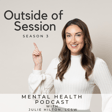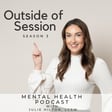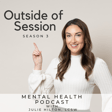
Launching Forward: Emerging into Adulthood Part 2
In this second episode, Julie and Dr. Hirt continue their exploration of emergining into adulthood, delving even deeper into the journey of overcoming obstacles and embracing the uniqeness of each individual's journey.
About today's guest:
Dr. Sean Hirt is a Licensed Psychologist & Practice Founder of Hirt Psychology. Dr. Hirt has an array of clinical experience in a variety of settings including private practice, residential treatment centers, non-public schools, and emergency shelters. He is particularly sought out for his expertise in treating and addressing anxiety, depression, poor self-esteem, behavioral issues, and autism spectrum disorder in children and adolescents. Other areas of focus include substance abuse, life-transition issues & trauma-related disorders.
Get in touch with Dr. Hirt:
https://www.hirtpsychology.com/sean-hirt




